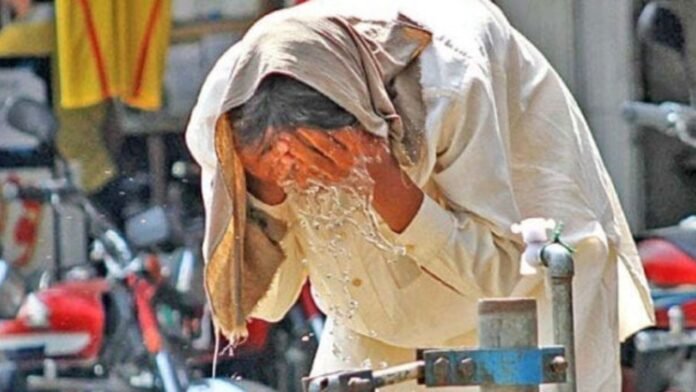As a result of severe heat in Karachi’s the situation of two hundred mourners has worsened significantly.
By 1 PM, according to Dr. Shahid Rasool, the Executive Director of Jinnah Hospital, there were at least 200 persons who had fallen sick due to the hot weather and they were recorded at the camp in Jinnah Hospital. He stressed that the medical staffs need to act urgently because this condition is causing a rapid deterioration in their health condition. The Immediate medical attention have been given to them for their recovery.
The Doctor noted that prevention was better than cure especially during such extreme heatwaves. Citizens should take cool drinks while going out and should move with wet towels or cloths. He also advised people not to expose themselves too much on sunlight especially during afternoon hours as it could cause stroke and other related diseases.
Karachi’s heat wave was particularly severe; temperatures went beyond normal limits for this time of year. This type of weather poses great health risks specifically among old people, small children, and individuals with pre-existing health conditions.
Health services are on high alert across hospitals within Karachi’s city where emergency response teams and medics are ready for immediate treatment of any person affected by the ongoing heatwave. Heat stroke, dehydration and exhaustion are major issues during these times, thus prompt intervention may save lives.
Besides healthcare workers providing necessary treatment measures, authorities in collaboration with humanitarian organizations have been distributing water as well as setting up some cooling centers in different parts of town for those areas without access to air conditioned environments among others as first aid towards mitigating effects occasioned by extreme heatwave that affects community well being.
More activities
Aimed at raising awareness about safety measures against heatwave have been carried out by authorities. Public announcements through media platforms like TV stations, radios have been considered important tools alongside other community based programs trying to educate populations on signs and symptoms of related illnesses associated with excessive heating plus keeping them cool and hydrated.
This case illustrates the importance of long-term strategies to address the growing challenges posed by climate change. Which are contributing to more frequent and intense heatwaves in many regions. Urban planning, infrastructure improvements, and public health initiatives aimed. At heatwave resilience are essential to protecting vulnerable populations and reducing the health impacts of extreme heat events.
While Karachi’s is currently dealing with immediate consequences of this ongoing heat wave. Authorities are also busy preparing for future calamities through refining emergency response protocols as well as enhancing community resilience. In order to effectively manage and mitigate these effects on human life. Better co-ordination between various government agencies, healthcare providers and civil society organizations is highly needed.
Despite immediate assistance
Despite immediate assistance being extended to those affected by the recent heat wave in Karachi. There is an urgent call for concerted efforts at local and national levels to help build resilience and adapt to ever increasing severe. Weather patterns resulting from climate change. This will be possible only if residents are well informed about the dangers of excessive heating up coupled. With timely intervention measures including community support in every resident welfare especially in most vulnerable people’s lives.


